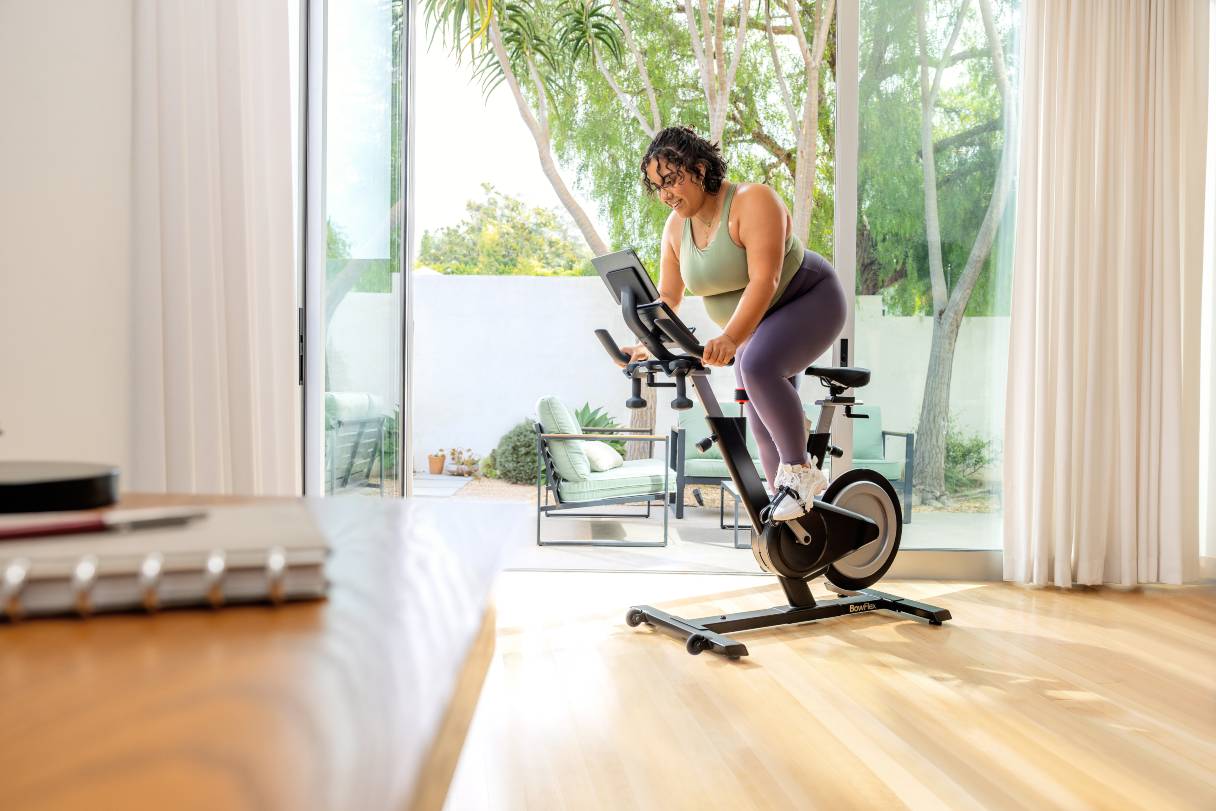Stress. It's something many people experience but no one wants, especially when it leaves you feeling anxious, irritable or frustrated. Good news, though: There are some simple things you can do to help manage it on your own, right now. So the next time you're feeling stressed out, try one of these techniques to relieve stress — fast!
1. Breathe Deeply
One of the most powerful techniques for relieving stress doesn’t require any tools, professionals or certifications: Deep breathing is something you can do anywhere at almost anytime. Research has shown deep breathing exercises to be effective at lowering resting blood pressure and reducing overall stress and anxiety.1
2. Go for a Nature Walk
Sitting and staying indoors may be contributing to your stress. Getting outside and walking in nature, on the other hand, can have positive impacts on stress. Research has found that combining walking and nature confers multiple benefits to a person, with positive impacts on mood, optimistic emotion and overall well-being. Walking in nature has also been shown to relieve anxiety and stressful rumination. Even if you can’t get out into nature, getting up from your desk to take a walk or exercise is still likely to bring positive benefits.2
3. Take a Break From Your Electronic Devices
If you remember a time before you had a smartphone, you might already know that putting down your phone and other devices can help reduce stress. A 2025 study showed that participants who disconnected from their phones experienced a 91% improvement in their overall mental health, sense of well-being and/or concentration. Taking a break from devices led to an increase in socializing, exercising and spending time in nature.3
4. Get Enough Sleep
Getting enough quality sleep is crucial for many bodily functions, including stress management. Research consistently shows that sleep deprivation leads to various issues, including mental health concerns, while adequate sleep helps alleviate these problems and reduce stress.4 Most people don't get enough sleep, so improving your sleep hygiene and increasing your rest can be an effective first step in managing stress.
5. Meditate
Meditation is a practice that teaches people to focus on the present moment and their breathing and enter a nonjudgmental state of self-observation known as mindfulness. It's also shown to be highly effective in reducing stress. Meditation has been linked to a variety of benefits, ranging from physiological improvements, like lowering blood pressure, to mental health benefits, such as stress reduction by way of reducing anxiety, depression and even post-traumatic stress disorder (PTSD).5
6. Practice Yoga
If yoga seems like people’s go-to suggestion for reducing stress, there’s a good reason for that. Studies have found that even just a few hours of yoga can have a dramatic impact on reducing stress. Yoga, based upon an ancient system that originates in India, combines physical movement and breathing in a way that activates the parasympathetic nervous system, which calms the body and mind and the effects of stress.6
7. Eat a Healthy Diet
While no single diet can eliminate stress altogether, some research has found connections between healthy eating, such as adopting the Mediterranean diet, and a reduction in stress. Make sure you're getting enough daily nutrients by eating more fruits and veggies, healthy fats (like salmon and avocados) and fermented foods and avoiding fast food, alcohol and sugary drinks.7
8. Reduce Caffeine Intake
On the topic of a healthy diet, some people may find that an overconsumption of caffeine worsens their stress symptoms. While caffeine in moderation has been shown to positively affect cognitive and mental functions, it can increase anxiety and stress in high doses. Some people may reduce stress by cutting back on caffeine, which is found in coffee, chocolate, tea, energy drinks, sodas and even some medications.8
9. Laugh
Anyone who’s ever had a good belly laugh with friends knows just how good it can make you feel. That feeling is more than just a fun moment; research shows that laughter can actually improve your ability to handle stress, as well as reduce stressful feelings.9 There’s a reason comedy is so popular.
10. Practice Progressive Muscle Relaxation
Progressive muscle relaxation is a technique where a person systematically contracts and then relaxes specific muscle groups while deep breathing until the entire body feels relaxed. It is a self-led, simple way for people to reduce stress symptoms.10
11. Get a Massage
Most people know anecdotally that getting a massage tends to make you feel better and more relaxed. That’s because it also activates your parasympathetic nervous system (PSNS), which promotes relaxation, the opposite of stress. PSNS activation has been shown to lower the hormones associated with stress and increase the brain chemicals — neurotransmitters — linked to feeling better. Your muscles tend to feel better, too.11
12. Practice Tai Chi
If it seems funny that an ancient Chinese martial art can reduce stress, it’s probably because you haven't tried tai chi. The form involves slow, gentle movements coupled with controlled breathing. It urges the practitioner to get into a meditative state, and it’s been increasingly associated with positive effects on stress reduction and anxiety.12
13. Spend Time With Animals
Most people don’t need scientific research to tell them what they already know when they cuddle their dog, cat or other pet — but time spent with animals has been shown to increase happy hormones and decrease stress hormones.13 So, even if you don’t have animals of your own, a visit to a friend’s pet or a trip to a local shelter or humane society could go a long way toward making you feel better.
14. Assert Yourself
While the conditions that cause stress can’t always be changed, there is one behavioral intervention that could make you feel better: being assertive. Research has found that assertiveness is connected to improved feelings of well-being and self-esteem.14 Simply learning to speak up when you need or want to could go a long way toward reducing some kinds of stress.
15. Meet a Friend or Colleague
Loneliness and isolation are not only difficult emotionally, but they’ve also been linked to negative health impacts that can increase physical conditions like heart disease, depression and even early mortality.15 Therefore, social connection not only reduces stress, but it can also be lifesaving and life-affirming, giving people a sense of belonging, value and connection.
16. Talk Positively to Yourself
Research has shown that positive self-talk can be beneficial in various situations, including:
- Boosting self-confidence in young adults16
- Easing academic success16
- Reducing overall stress when combined with mindfulness practice17
Managing Health and Wellness Costs With the CareCredit Credit Card
If you are looking for an option to help manage your health and wellness costs, consider financing with the CareCredit credit card. The CareCredit credit card can help you pay for the care you want and need and make payments easy to manage.* Use our Acceptance Locator to find a provider near you that accepts CareCredit. Continue your wellness journey by downloading the CareCredit Mobile App to manage your account, find a provider on the go and easily access the Well U blog for more great articles, podcasts and videos.
Your CareCredit credit card can be used in so many ways within the CareCredit network including vision, dentistry, cosmetic, pet care, hearing, health systems, dermatology, pharmacy purchases and spa treatments. How will you invest in your health and wellness next?
Author Bio
Jordan Rosenfeld has been freelance writing for 21 years about finances, health, education and more. Her work has appeared in The Atlantic, The Billfold, Good Magazine, GOBanking Rates, Daily Worth, Quartz, Medical Economics, The New York Times, PayPal, The Washington Post and more.








